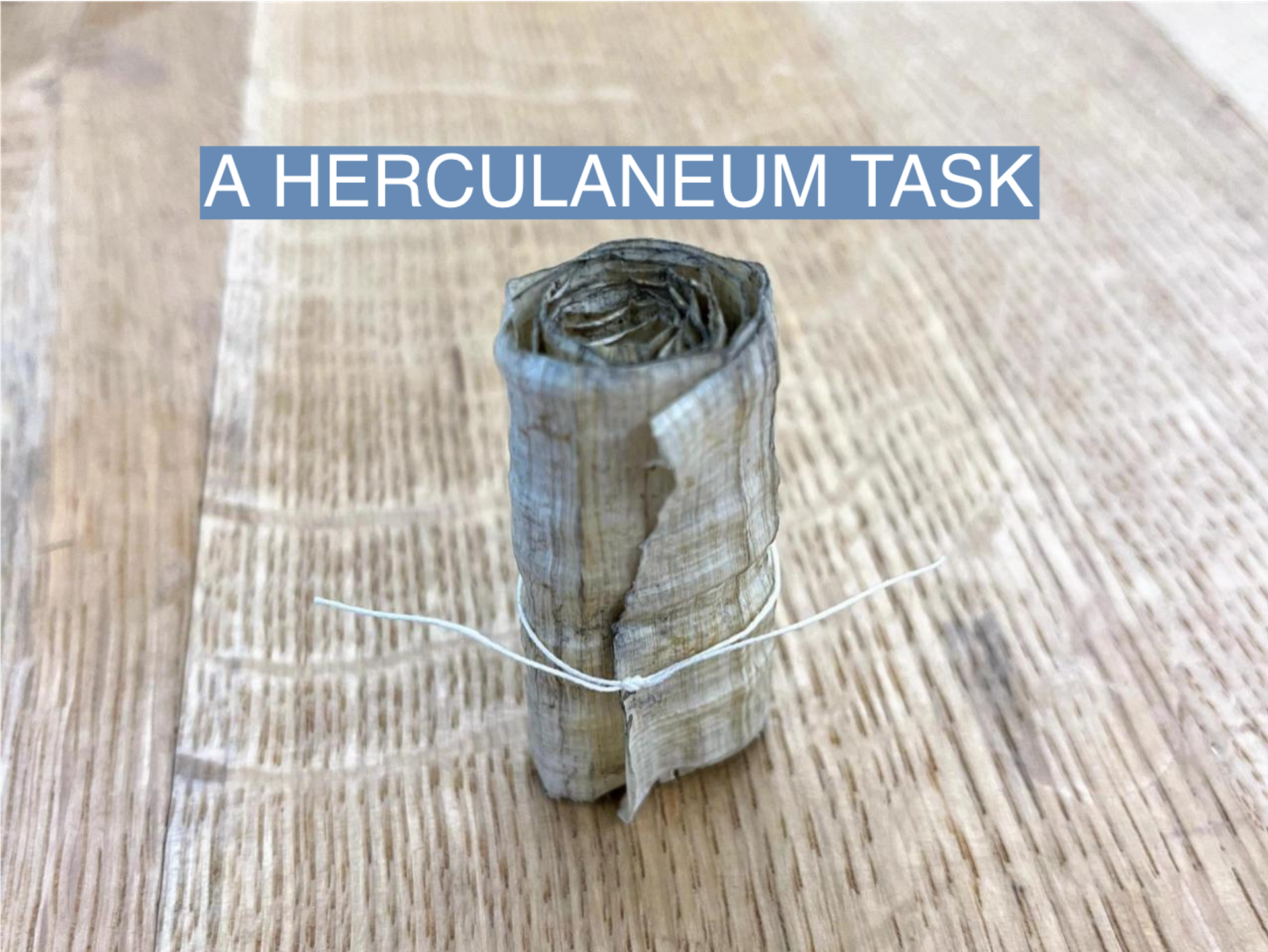The News
A pair of tech executives are offering a total of $250,000 in prize money to incentivize artificial intelligence experts to help them read the “Herculaneum papyri,” hundreds of invaluable scrolls that were charred by the Mount Vesuvius eruption in 79 A.D.
In this article:
Know More
The scrolls were first discovered during a 1752 excavation in a villa owned by Julius Caesar’s brother-in-law, and they would have drastically increased the number of texts from the Greco-Roman world — if only anyone could read them. They crumble as soon as they’re touched. (You can make your own by heating papyrus in a Dutch oven at 500 degrees for a few hours).
Brent Seales, head of the University of Kentucky’s Center for Visualization and Virtual Environments, achieved a breakthrough after years of searching for a method to read the scrolls without destroying them. Seales is known for using cutting-edge technology to read the Ein-Gedi scroll, another indecipherable burned text that turned out to be a copy of Leviticus dating back to the sixth century.
For the Herculaneum papyri, Seales had to step it up a notch, employing among other tools the Diamond Light Source particle accelerator in the U.K. just to get enough precision to see 2,000-year-old ink printed on what is essentially ash.
The next step is turning terabytes of data into readable text. That’s where Silicon Valley comes in.
Making connections
Nat Friedman, a tech entrepreneur who recently served as CEO of Microsoft’s GitHub, read the book 24 Hours in Ancient Rome during the COVID-19 lockdown and became obsessed with that period of history, which led him to stumble upon Seales’ work on the Herculaneum scrolls.
Friedman contacted Seales, who himself started out as an artificial intelligence researcher in the 1980s, and asked how he could help speed up the search.
In an interview, Friedman said Seales would probably be able to figure it out himself, but that could take years. By crowdsourcing it, he hopes to unlock the creativity of AI researchers around the world.
Friedman is funding the prize money with Daniel Gross, another entrepreneur who ran AI and search projects at Apple from 2013 to 2017.
The researchers describe the data as a “word soup of floating letters,” which might be a good test of the latest advancements in artificial intelligence pioneered by companies like OpenAI.
The grand prize of $150,000 will be awarded to the first team to render one of the fully-scanned scrolls readable by the end of the year.
The View From the UK
U.K. Chancellor Jeremy Hunt announced an annual £1 million prize for artificial intelligence research on Wednesday to encourage more innovation in the sector in Britain.
He named the award the Manchester Prize, in recognition of groundbreaking computer research at the U.K.’s University of Manchester.
“The world’s first stored program computer was built at the University of Manchester in 1948 and was known as the Manchester Baby. 75 years on the Baby has grown up, so I will call this new national AI award the Manchester Prize in its honor,” Hunt said.
